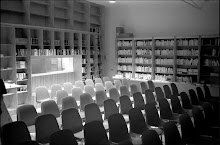
Blog #1
This is my first ever residency. When I was offered it in April, I was thrilled for reasons slightly extraneous to the business of writing, largely to do with being in a large, beautiful apartment in the heart of Brussels, a city I’d never visited, where I’d be left on my own for 4 weeks, my only obligation being to write my book. And I would be paid for it. I squeezed my eyes tight shut and pinched myself several times. I opened them and the Lady with the Glad Tidings was still standing there, expecting an answer to her question, ‘Do you like French food?’, for that was how she broke the news to me. When the delight settled down – there was more coming; the 4 weeks went up to 6 because of scheduling logistics with other writers’ times in the apartment; I feel like adding an exclamation mark after that but I shall desist – I was left contemplating the heart of the matter: the business of writing I mentioned before, the actual labour and execution, the putting-words-down-on-the-page, page-after-page part of it.
There lay the rub. I write well enough – a matter of opinion, I know, but let’s just assume that for argument’s sake – in the mess of my own life in London. To tell you the truth, other lives appear to be messier, much more difficult than mine. I am incredibly fortunate in not having to juggle a full-time job, children, family, all the roaring, ravenous demands of the outside world. Which means I’m not doing 77 words in between the morning school-run and the grocery-shopping, or 124 after coming back from work, cooking the children’s supper, giving them a bath, putting them to bed, reading to them … even writing about it makes me want to slump over my keyboard with exhaustion. How do women do it? How have they done it for centuries?
I have always thought that writers’ residencies are for people such as these, women and men who have to snatch ruthlessly, at times desperately, at the precious interstitial time in their teeming, overworked lives. A residency for them is that great gift of time. And perhaps also silence. I have a friend whose first novel is coming out next year and she’s written and done the back-breaking work of editing it in extremely limited time while keeping down a 4-days-a-week job and bringing up two children. She has done it without a residency and in three years’ time. To coin a phrase, I don’t know how she does it.
Well, I really don’t. So I took up this residency with not a negligible smattering of guilt and an escalating anxiety that all that time and silence, without company, cat, and the consumptive nature of one’s daily life – after all, it does eat into your time and energies like a disease – to provide some kind of texture and contrast would leave me sitting with pen in hand and blank page on the desk, the dead time and slack all exposed as so much disgusting detritus on a shore when the tide leaves. I have heard of writers who have used their time gainfully in residencies to write write write only to return home to discover that the stuff written was dud and was fit only for the guillotine of the ‘Delete’ button because they were writing in a vacuum, away from the energies of their lives of which writing was only one and synergetic with the others. As the time approached for my departure to Brussels, my initial excitement had become distinctly cloudy: a feeling of being undeserving coupled with trepidation is not a good way to accept a gift.
It’s easy to guess that I was wrong but I have to tell you about my discovery of the several ways I was wrong. Watch this space.
